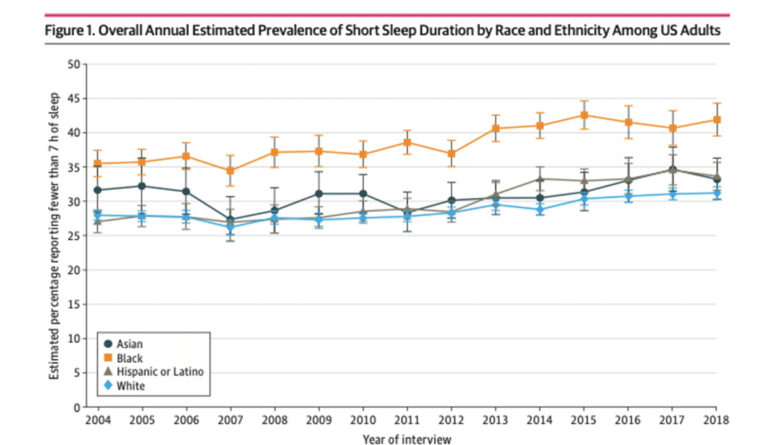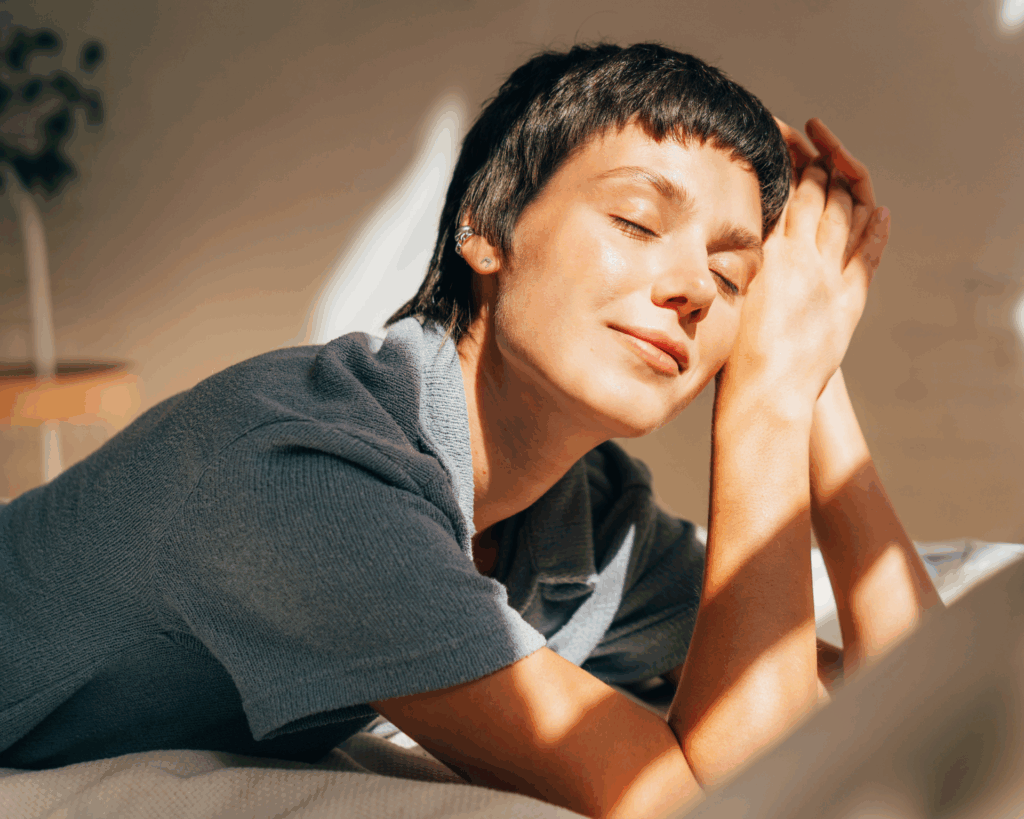Dream Disparities
The percentage of people getting less that seven hours sleep per night increased significantly from 2004-2018, particularly for Black people.

Read Time: 2 minutes
Published:
Meditation and lullabies, counting sheep and taking a warm bath. These are all commonly used techniques to achieve the pleasure and health benefits of a good night of sleep. Yet the benefits of being well-rested are not equally shared. Research shows that marginalized racial and ethnic groups are more likely to report not getting enough sleep.
Too little sleep (less than seven hours) is associated with several adverse health outcomes including fatigue, cardiovascular and endocrine abnormalities, stress, and cognitive problems. Lack of sleep for people of color contributes to disparities in mental health, physical health, and quality of life.
Cesar Caraballo and colleagues studied self-reported sleep trends among adults in the U.S., to evaluate differences between ethnic groups and income levels. They studied National Health Interview Survey data for more than 400,000 individuals from 2004 to 2018.
As shown in the figure, the percentage of people getting less that seven hours sleep per night increased significantly during the study period, particularly for Black people. Among Black people, Black women were at a higher risk of not getting enough sleep.
Experiencing racial discrimination and chronic stress is associated with having to be constantly vigilant, which contributes to lower quality and shorter sleep. In the U.S., Black people face more racial discrimination than any other group. And, within this group, Black women face more discrimination than men. Over the fourteen years for which data were analyzed, Black women were most at risk for too little sleep. Other barriers to a full night’s sleep for marginalized communities include exposure to noise, air, and light pollution.
Researchers from the National Sleep Foundation recommend the following strategies to achieve better sleep: 1) a fixed time for going to bed and waking up, 2) not overdoing naps, 3) cutting down on caffeine, 4) eating a light dinner, and 5) being physically active. Sleep is vital for mental and physical health, and better sleep for people of color might result in fewer health disparities between Black and White communities.
Cesar Caraballo, Shiwani Mahajan, Javier Valero-Elizondo, Evaluation of Temporal Trends in Racial and Ethnic Disparities in Sleep Duration Among US Adults, 2004-2018. JAMA Network Open, 2022.



